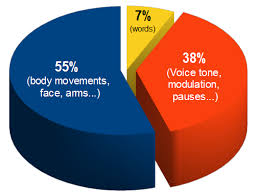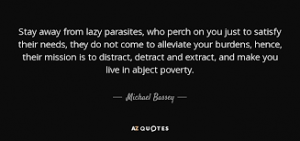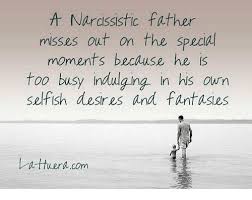
Healthy parenting
Parenting starts before babies are even born, with regard to diet, having healthy life style and generally taking care of their unborn. Once a baby is born they need loads of love and affection, they need to be talked to, to be listened to, to be mirrored, to have healthy boundaries and can be assertive in stating them and above all they need to feel safe, for this they need to have their emotional and physical needs met.
A child needs to feel safe when they are expressing their feelings and secure in the knowledge that they will not be punished for doing so, this enables them to develop intimacy and healthy relationships in the future outside the family unit.
Giving a child a roof over its head and food on the table is the absolute bare minimum that a healthy parent strives to provide
When the children are still young they can be taught different developmental stages of behaviour such as helping with taking care of themselves, encouraging exploration, social interaction, friendship and kindness, letting them make simple choices, explaining why you discipline, help them solve problems for themselves and teaching them how to share.
As they get older they can be set goals, can be taught the difference between right and wrong, to give them the tools to make decisions when the parents are not around, and to celebrate good behaviours. No matter what the developmental stage of a child they always need love, affection and attention (to be listened to and to be heard).
The primary task of parenting is to raise healthy, happy independent children who are confident, have a healthy self-esteem and who have the coping skill that are necessary for surviving in this chaotic world. For this to happen the child needs to know that they are loved, cherished and wanted, that what they want is listened to and that they can express their wants and needs without being ignored or criticised for having them.
A child will listen very carefully to what their parents say so the language that is used is very important. There is a HUGE difference to a child if s/he hears “you idiot, you made a mess of that” or “that didn’t work so well, why don’t you/we try it this way”, the first way is violent, destructive and negative whereas the second way is constructive, honest and helpful. The residual effect on how the child will feel about himself and her abilities are enormous. Same action – one destructive reaction, the other a positive encouraging response, message to the child is poles apart, their efforts need to be valued instead of teaching them to try to avoid failure. A parent needs to have high expectations of their child so that they strive to thrive, rather than quit to avoid failure.
Children will do what their parents do, not what they say. They will listen to the language used as above, but a stronger example for the child will be the behaviour, actions and reactions of their parents, they mimic the behaviour that they see around them, so it is important for the child to provide a good role model.
This means that discipline begins with the adults not with the child. You can talk until you are blue in the face, but if your actions belie your words they child will follow your actions. That is why it is called a role model.
What narcissist parenting looks like
The short answer to “what narcissistic parenting looks like” to a child is that it is absolutely terrifying, confusing and abusive. It will almost certainly cause lifelong trauma in the child and because the narcissist doesn’t care, adult children of narcissists will rarely if ever get closure on the issue of their childhood.
On the face of it it is a mystery why a narcissist would want to have a child at all since they are completely self-absorbed and genuinely do not have any interest in others. So why would they want to be a parent when a child will have so many needs, practical, emotional and financial and requires so much of their parent’s time and energy?
Narcissists do not have children because they want to nurture, guide and encourage their baby into being a well-balanced adult, they have children for two reasons. The first is because that is what they think society tells them to do (and image is everything), they will use their child as a social prop. The narcissistic mother will hold her baby on her hip but she will not bond with her or mirror her in any way and will get angry with the baby when s/he cries out in distress because his or her emotional/physical needs are not being met. A healthy response to a baby who cries all the time might be concern, frustration or feelings of inadequacy, the narcissist’s reaction will be anger and rage with the baby, somewhere inside her head will be a voice saying “s/he is doing this to annoy me”. Secondly, as a parent they will automatically have all of the power in the “relationship” and an enforced ready-made “audience” that will be completely focused on them. Children are ideal for a narcissist because they can mould and discipline them to how they want them to be from a very young age. The child of a narcissist will learn that they exist purely to facilitate the needs and desires of the parent, and that this is a one-way contract (albeit one that they didn’t agree to enter into). Their parent(s) are not interested in taking care of their child and their child will be taught that they are not to make demands on the parent(s) as they will almost certainly be punished for it.
Their child will learn that they must take on the role that has been assigned to them by the narcissistic parent, that could be golden child, scapegoat or somewhere in between (see section on narcissistic mother). The siblings between them will try to maintain any given allocated roles, so as not to incur the wrath of the narcissistic parent(s).
It is for this reason that there is very little point in talking to siblings about a toxic parent, as they will rush to the parent’s defence out of fear of being punished or having to face the truth about the family dynamic. If both parents are narcissistic that child could be playing two roles at once (for example golden child to one and scapegoat to the other) it is very stressful for a child to try to keep both parents “happy” as they constantly have to check in with their parent to see if they are “doing it right”, should the child deviate from their role they will be punished, ridiculed, sneered at or ignored completely. This dynamic is extremely confusing for a child as a behaviour that is applauded one day might get punished the next day even by the same parent as the narcissist will change the rules on a whim, the child in the company of both parents might be trying to play both roles simultaneously which very often means trying to be as invisible as possible.
The child also learns that the “love” that they get from their parent is absolutely dependent on how well they serve their needs, the consequence of this is that they child will constantly be in a state of high alert (often living off their nerves) and will be very reactive, they will try to anticipate what the parent wants before it is expressed. The narcissistic parent is either unaware of the trauma that they are causing, or if they do notice that their child is trembling (or even vomiting) with fear they don’t care and will laugh at their child for being “too sensitive”.
The child also knows that one of the roles that has been given to all offspring is to protect the image of the parent/family at all costs. If someone outside the family should mention that the parent behaves in an inappropriate way, the child will leap to their defence just as they have been programmed to from a very young age.
Unfortunately, this will be the adult child’s model for “love”, they actually feel uncomfortable around someone who could provide a healthy and loving relationship because they have been brought up knowing that the amount of “love” that they get is directly linked to how well they serve others and they are actually unworthy of healthy love. This creates even more difficulty for the adult child as they will tend to gravitate towards people who treat them the same way that their parents treated them, they will also be prey for other narcissists who will instinctively know that these adult children will be easy to manipulate and the unhealthy pattern may well be repeated in future relationships with friends and lovers. This can be prevented from happening again by getting educated on narcissism, knowing your boundaries and learning when to say NO.
The children of narcissists will almost always feel unlovable since they were not loved as children. They will have a fear that if they meet someone kind and gentle who genuinely loves them or appears to, that they will be exposed further into the relationship as the unlovable “horrible” person that they were always told they were by their parent(s), and as every child of a narcissist knows “mummy/daddy always knows best” as it is repeated ad nauseaum throughout their childhood.
If the child or adult child tries to set healthy boundaries, the narcissistic parent will over ride their child either by explicitly ignoring their request, or by getting angry, upset, sulking or by physically forcing the young child to do what they want. The narcissist will not take any responsibility for any of the negative comments/actions that they make to their children. They constantly put their child down or insist that are only doing what is best for the child, even though they are mindlessly pursuing their own needs.
The narcissist parent will try to pull every conversation that they have to be about them or something that they can pontificate about. They will talk louder to drown out other conversations that might take place at a dinner table or tell their child to “stop showing off” if their child is singing, dancing or getting prizes at school. If the narcissist cannot control their child in public (because they are wise enough to know not to berate their off spring in public as they would at home), that child will be punished at a later date. They will be told that they “made completely fool of yourself” or that they made a terrible social faux pas and some punishment other than the verbal humiliation will almost certainly ensue. This could be in the form of limiting the child’s contact with the outside world which is completely under their control (so that they don’t embarrass themselves again). This type of ridicule and cruel criticism of someone who is enjoying the company of others can lead to the development of social anxiety later on for fear of making an idiot of themselves but more importantly to the child upsetting their parent(s). This means that the child is only really happy in formal social situations such as theatre, cinema or even funerals where the roles are clearly defined, safe and there is no impromptu interaction if they do not want it.
The narcissist parents feel that they are entitled to invade every aspect of the child’s life. They will give a running commentary on everything that they know about in their child’s lives from friendships, school subjects, all out of school activities, boyfriends/girlfriends, marriages, how to bring up children and will control the relationships between the family members and will try to enforce their opinion where ever they can so that they feel powerful. In a way, they are that powerful because they brainwash their children from when they are born.
One of the side effects of this sort of tyrannical invasion is that the child(ren) can become pathologically secretive and will not feel comfortable about telling their parents anything that is going on in their lives. Narcissists are what has been referred to as emotional vampires, they will control and manipulate the emotions of their children from the beginning, as the child gets older and expresses more independent opinions the narcissist just rebuffs harder using rage, sadism, criticism and negative feedback to get control.
Both narcissistic parents have common attributes. The most difficult one to accept is the fact that narcissist parents do not love their young. They only “love” them for what they can give them and that “love” is absolutely conditional.
Society will not let us say “bad” things about our parents, because of course all parents love their children. This is not the case when a parent has a narcissistic personality disorder and it is why as an adult child of narcissists that you may have very many confusing issues which are difficult to understand where they came from. Both narcissist parents will say that they love their child, but it is not true. If you think that you are the child of a narcissistic parent you need to examine their behaviour, past and present and ignore the content of what they say. The most notable aspect of narcissist parents is that they categorically refuse to see their children as anything other than their possessions or pets.
This is a very unhealthy and dysfunctional scenario. The child doesn’t know any better and so will accept it as the norm, but it is a hugely inappropriate burden to put on a child since that child is
- An innocent
- Has no experience of life
- Is trying to work stuff out for themselves because they are not being nurtured or guided, but are being neglected and deprived of parental care and are frequently put in a position where they are expected to take care of the parent(s)
- Has all the responsibility but absolutely no power or control
Paradoxically narcissist parents never truly see their child as an adult (when they have grown up) and will continue to act out in exactly the same way that they did when they were a child even if they are married, have children, an important job etc. The strange thing is that a narcissistic parent will frequently talk at their children as though they were adults, but once they become adults they talk at them as though they were a child.
Since narcissistic parents do not see their children as independent individuals they will often use “we” (first person plural) as a way to say what they think. This is an indication of the fact that they see the family as “their” unit, rather than a collection of individuals, and to inform their children that there is one way to look at things, that is their way and it is non-negotiable (even though what the parent says they think will change constantly). If they child disagrees with a narcissistic parent, especially in public, it will be met with rage (though not overt) and will almost certainly be punished at a later date.
Some very common traits of narcissistic parents:
- The will constantly give unsolicited advice. This advice can range from what their child should study to who their friends should be. They will decide what script best suits their image of themselves and they will expect their child to comply. Their comments will be peppered with expressions such as “you really should”, “you are making a fool of yourself by”, “if I were you”, “no, I insist that you do it my way, you are only a child, what do you know”. It is worth making note that at no time will a narcissistic parent sit you down and ask their child what they want for themselves or how they are getting on in life. They are simply not interested.
- They will however, constantly intrude on the child’s privacy and barge in unannounced “to see what you are up to”, “see if you are okay”. This is not curiosity about their welfare, this is information harvesting so that they have information “on you”, that they can use it against you at some later time as a control tool, they have absolutely no qualms about doing this because they are “their” children. This invasion comes in the form of opening post, checking phones, reading emails, rummaging through bedrooms, walking into bathrooms without knocking and generally trying to track their child as extensively as possible.
- They can either show complete indifference or over react when you bring them a problem. A good example of this is being sick. They could say your fine you don’t even have a temperature even though you might have appendicitis. Or else they can go into over drive with all the associated histrionics “Oh I am so worried”, and jump right in to the middle of the situation and make it all about them, wearing faux expressions of weariness and concern, seeking out the head doctors and nurses and demanding their attention.
- Narcissistic parents can very often act helpless “oh what do you want me to do?” “I would love to help you but I don’t know how”, when a parent says things like that to a child, the child will try to step into the gap and assume an age inappropriate amount of responsibility.
- The narcissist parent will be at once very secretive about themselves but at the same time share too much information with their children, such as marital difficulties, they will do this to try to get the children take sides. A parent might tell their child about sexual experiences that they have had or generally treat their children like they are all just (same age) friends hanging out together.
- The narcissist parent while are very guarded about themselves in public will talk about their children in a completely uncensored way with absolutely no discretion, loyalty, honesty or support for their child. If they don’t know anything about their child (because they are not interested or the child has learnt to become very secretive) they will just make stuff up.
- To make themselves feel strong a narcissist parent will often tell their children that they are weak and inferior to them in everything that they do (or even anything they might attempt to do in the future). They will always remind say that they are superior and that always must be acknowledged.
- They will often be know-alls “I know everything worth knowing and if I don’t know it (which would rarely be admitted to) it is not worth knowing.” If a discussion starts about something that they know nothing about, they will just change the subject of do something to bring the attention back on to them.
- If someone upsets them the child had better actively take their side (otherwise there will be recriminations), if someone upsets the child they will happily take the side of a complete stranger that they have never even met saying “you must have done something to deserve it”.
- They can get very angry sometimes but will not say why, they will just let their child know that they will punish them for their anger later. Their anger might be triggered by someone being critical of them, since they cannot tolerate criticism they will blame/project and punish their child for this slight (even though the child was not there)
- Their child must agree with everything they say, although they can mock, sneer, invalidate and criticise the things that their child says.
- They will share things about their child in public that their child would prefer to be kept private, if their child says anything even slightly negative about them – they will be punished.
- They can falsely accuse their child of things that they never did or said, if they defend themselves it will make the narcissistic parent a liar and they will be punished for that.
- They demand respect, but do not have to show their child respect and won’t at any time.
- They will never apologise to their child but the child must always be ready to apologise to them (even if it is not their fault).
Do you have narcissistic parents? Here are some questions to ask yourself:
- Do I trust my parents?
- Do I feel loved and cherished by my parents?
- Do I feel like I have been a burden/disappointment to my parents?
- If I got in to difficulty of some sort would I go to them for support or advice?
- Are there things that I/we as children were not allowed to do that “normal” families did not have a problem with such as sport, going to parties, getting a part time job and going on school trips (and not for any financial or practical reasons)
- If you won a prize (at school or some other sort of competition) would you be inclined to share it with your parents or keep it a secret?
- Do you feel responsible for your parents in general?
- Do you feel like you had a large part to play in their happiness?
- Did you feel like your family home was your collective home or were you a guest there and being let stay there was dependent on your behaviour?
- Apart from the most basic things, do you know much about your parent’s family of origin?
- Do you believe what they tell you about their own history and achievements?
- Would have gone to your parents if you were being bullied, felt sick, frightened or were hurting in some way?
- Do you feel better or worse (more vulnerable) after you have shared information about yourself with your parents?
- Do you feel comfortable in your parent’s company?
- Are your parents polite to you?
- Do your parents talk to you or talk at you?
- Can your parents celebrate your achievements or important life events such as birthdays, marriages promotions or the birth of your children?
- Are you close to your siblings?
- Do your parents pitch one sibling off against another?
- Can you talk openly with your parents about your ideas, dreams and values without fear of being ridiculed or invalidated?
- Have your parents ever told you that “you are not good enough” when you shared an aspiration/dream with them, even though they might know absolutely nothing about the subject
- Have they told you “you are not qualified” for something when you suggest that you are going to apply for a job.
- If you are qualified in a profession, do they ever solicit your professional advice or do they still treat you as a child and seek advice somewhere else?
If you agree with even a handful of the above questions you have probably been raised by narcissist(s). It is not disloyal to admit it, it is healthy for you to acknowledge it so that you can move forward into a healthier and happier life.






